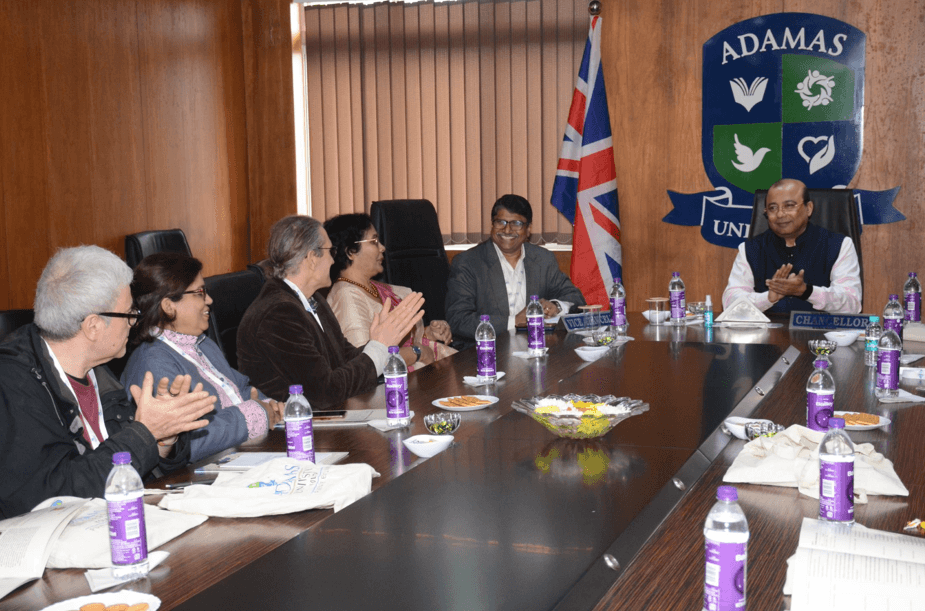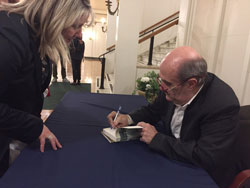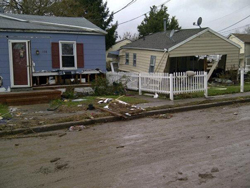Rekha Datta, Ph.D., Professor of Political Science and Freed Endowed Chair in Social Sciences, and Lenien Jamir, junior international student-athlete studying political science and sociology, co-authored a paper and presented their research at the Interdisciplinary International Conference held at Adamas University in Kolkata India, from Jan. 2 to 3.
Their paper, “Confluence and Anomaly of East-West Perspectives on Development: The Advent of Tata Steel on Local and Adivasi (Indigenous) Communities in India,” was well-received, while Jamir received commendation for being the only undergraduate student presenter at the conference.
The theme of the conference was “Morality, Spirituality, Culture and Society; East and West,” garnering participation from scholars and delegates all over the globe including the United States, India, Bangladesh, Indonesia, Taiwan, Italy, and Finland.
Datta and Jamir’s professional relationship transpired just a year before the conference. “When Len [Jamir] enrolled in my PS-377 ‘Women and the World’ class in the spring of 2022, I was impressed by her intellectual curiosity and grit to learn and do well. She is an organized and hardworking student. These qualities are critical for the success of research work,” began Datta.
Upon Jamir expressing interest in applying for the Provost’s Summer Scholars Program last spring, Datta felt the two could collaborate on this project. “I knew right away that Len would be perfect for [this research]. She has the dedication, focus, and perseverance needed to carry out a such project,” Datta explained. “So, during our meetings and discussions about her project last summer, I shared with her another project I was working on with Anna Sadovnikova, Assistant Professor from the Leon Hess School of Business. The interdisciplinary project is a book-length one, tracing the business history and socio-economic trajectory of India’s industrialization through the case study of Tata Steel. Those discussions led to questions about indigenous communities that were displaced during Tata Steel’s efforts to extract iron ore from mines set deep in forest regions, which have been the home of many indigenous communities for generations. Len was excited to help with the research on indigenous communities, and we carved out a research project which led to this conference paper.”
For the Provost’s Summer Scholars Program, Jamir explored the place and voices of indigenous women in international climate treaties, collating the information from UN sources and other international databases.
According to Datta, the story of Tata is one that greatly resonates with India. Since 2008, Tata has spearheaded many global acquisitions and owns steel and auto enterprises in Europe and the U.S., acquiring enterprises such as the signature Jaguar-Landrover and Corus (now known as Tata Steel Europe Ltd). Tata’s global presence is also manifested in well-known products and services such as Tetley Tea, and elite hotels in the United States such as the Pierre in New York, Taj-Boston, and Taj Campton Place in San Francisco.
Jamir reflected, “I have a lot of respect for Professor Datta as an academic— she’s taught me so much already, so when she brought up the idea of building off of my project and working with her on this paper, I knew for sure I had to do it!”
Kevin Dooley, Ph.D., Associate Professor and Chair for the Department of Political Science and Sociology, added, “Faculty-student research is critical because it allows the student the opportunity of working with a practicing scholar in her/his field. It exemplifies the idea of active learning. The collaboration between Lenien and Dr. Datta should be seen as a model for these types of projects and should be explored by every department on campus.”
The trip for Jamir was made possible because the financial support of the offices of the Provost, Dean of Humanities and Social Sciences, Dean of the Leon Hess Business School, the Honors School and the Department of Political Science and Sociology, per Datta.
She expanded, “With the global and land-displacement and climate impact of the study, Len also reached out to the Institute for Global Understanding and the Urban Coast Institute and received financial support. Above all, everyone’s encouragement gave her the courage to take on the project and the trip.”
“The Adamas University welcomed us so warmly and there were a lot of opening dances, felicitations, and food. I met so many other academic scholars from Norway, England, Bangladesh and Finland! The whole experience was very professional and gave me insight on how these big international conferences are held. I felt honored to be involved!” closed Jamir.




